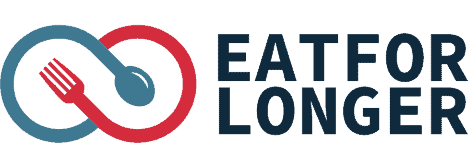**Research and Innovation:**
– FARE established the FARE Clinical Network in 2015, with over 45 food allergy clinical trials in 2021.
– FARE co-funded the LEAP study, influencing national guidelines on peanut introduction.
– Initiatives on early introduction of multiple food allergens and desensitization methods.
– Starting the SEED Initiative with Northwestern University for multi-allergen early introduction.
– Impact on guidelines promoting early allergen introduction and improving diagnosis methods.
**Education and Awareness Initiatives:**
– FARE provides educational resources for managing allergen exposure risks.
– Resources target various groups like children, teens, adults with food allergies, families, educators, and healthcare providers.
– Promotion of the Teal Pumpkin Project for safe Halloween celebrations.
– Observance of Food Allergy Awareness Week annually in May.
– Offering a college search tool for students with food allergies to find suitable accommodations.
**Advocacy and Policy Influence:**
– FARE, with over 65,000 advocates, supports policies benefiting the food allergy community.
– Key role in passing the Food Allergen Labeling and Consumer Protection Act of 2004.
– Advocacy for the FASTER Act, requiring sesame labeling on packaged goods starting in 2023.
– Influence on national policies for clear allergen labeling on packaged foods.
– Advocacy efforts to positively impact individuals with food allergies.
**Organization History and Achievements:**
– FARE formed in 2012 through the merger of FAAN and FAI.
– Focus on patient education, research funding, and enhancing lives of individuals with food allergies.
– Marking its 10th anniversary in 2022 with $100 million investments in research and education.
– Combining expertise in patient education, government lobbying, and research funding.
– Aims to enhance the lives of individuals with food allergies through its work.
**Impact on Guidelines and National Efforts:**
– FARE’s research influences guidelines promoting early allergen introduction.
– Support for studies on desensitization to multiple food allergens.
– Influence on new guidelines endorsing early allergen introduction by AAP and NIAID.
– Efforts to improve food allergy diagnosis methods through research initiatives.
– Contributions to the FARE Patient Registry for the food allergy community.
This article has multiple issues. Please help improve it or discuss these issues on the talk page. (Learn how and when to remove these template messages)
|
Food Allergy Research & Education (FARE) is a non-profit, private organization dedicated to food allergy awareness, research, education, and advocacy. FARE's goal is to enhance the lives of people with food allergies by providing support and resources to help them live safe yet productive lives. FARE also includes information for people without food allergies, who are looking to not only be respectful of others but also become more educated and gain more awareness regarding healthcare and treatments. The organization provides information, programs, and resources about food allergies and anaphylaxis, a severe, potentially life-threatening allergic reaction. Working on behalf of more than 32 million Americans who have potentially life-threatening food allergies, FARE's mission is to improve the quality of life and health of those with food allergies and to provide hope for the development of new treatments and diagnostics.
 | |
| Founded | 2012; established through merger of the Food Allergy & Anaphylaxis Network (est.1991) and the Food Allergy Initiative (est. 1998) |
|---|---|
| Focus | Food allergies |
| Location |
|
Area served | United States |
| Method | Research, Education, Awareness, Advocacy |
CEO | Sung Poblete |
Revenue | $18,707,655 USD (for year ending December 31, 2020) |
| Website | www |
FARE formed in 2012 through the merger of two food allergy patient advocacy organizations: the Food Allergy & Anaphylaxis Network (FAAN), a nonprofit organization founded in 1991 by whose goal was to provide information about food allergies during a time when this information was limited and the Food Allergy Initiative (FAI), founded in 1998 by concerned parents and grandparents who were committed to advancing food allergy research. The new organization combined FAAN's expertise in patient education and government lobbying with FAI's leadership in research funding. As FARE marks its 10th anniversary in 2022, the organization's donor supported investments in food allergy research, education, and advocacy totaled $100 million.
